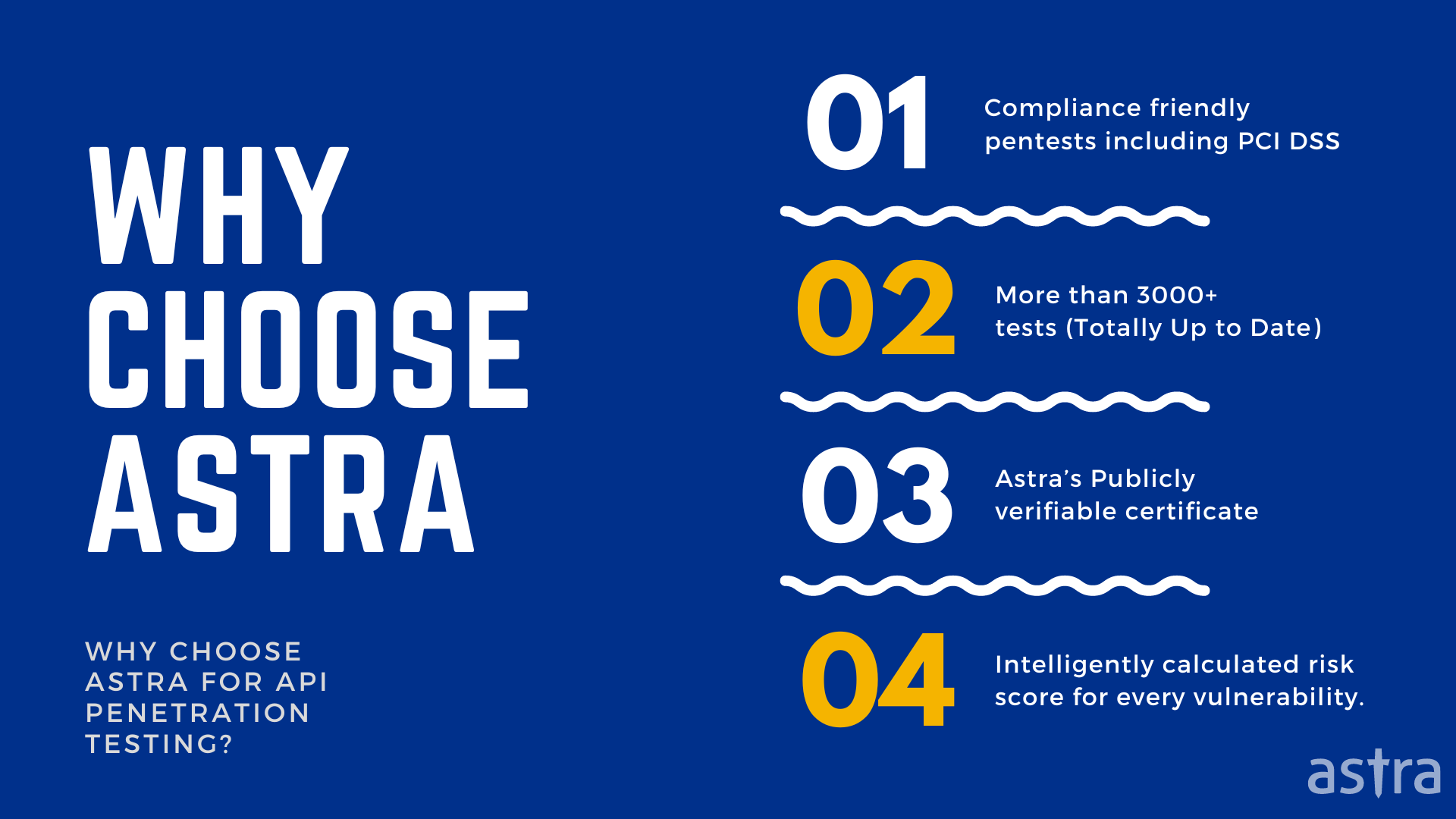The world has become an interconnected place through APIs and applications. The problem is that most companies don’t do enough to ensure their APIs are protected. Even worse, most companies don’t consider testing their APIs’ security.
Here, the article looks at an essential aspect of cyber security, API penetration testing, and gives an overview of the most common security loopholes.
What is API Penetration Testing?
API Penetration Testing is a type of security testing performed on application programming interfaces (APIs) to assess the strength of their security controls. It aims to identify security vulnerabilities that attackers could exploit to gain access to sensitive data or perform other malicious actions.
API Penetration Testing typically involves trying to attack the API in the same way an attacker would find any weaknesses that a hacker could exploit. This includes testing for SQL injection and cross-site scripting (XSS) attacks and other API level vulnerabilities.
It is important to note that API Penetration Testing differs from testing the overall application’s security, as the focus is specifically on the API itself.
Why is API Penetration Testing Essential?
API penetration testing is essential to ensure the security of an application. Testing the API allows potential security vulnerabilities to be identified and remediated before they can be exploited. Additionally, penetration testing can help to ensure that the API is functioning as intended and that there are no unanticipated security risks.
By conducting regular penetration tests, organizations can proactively reduce the risk of security breaches and ensure the safety of their data and systems.
In addition, API penetration testing can also help organizations to compliance and privacy regulations.
3 Common Vulnerabilities Found in APIs
Many different types of vulnerabilities can be found in APIs, but there are three that are particularly common:
1. Lack of Authentication and Authorization
This security vulnerability allows unauthorized access to an API. This can be exploited to gain access to sensitive data or perform actions that the authorized user is not supposed to be able to do.
2. Insufficient Rate Limiting
This security vulnerability allows too many requests to be made to an API in a given period. This can be exploited to perform denial of service attacks or to overload the API server.
3. Insecure Communication
This is a security vulnerability that allows communication between the API client and server to be intercepted. This can be exploited to eavesdrop on conversations or to view sensitive data.
These are just a few of the many security vulnerabilities that can be found in APIs. It is important to keep these in mind when developing or using APIs.
API Penetration Testing Checklist
UK IT Governance produced a checklist based on OWASP and OSSTMM methodology in order to ensure that the items mentioned in it are followed when conducting penetration testing for API.
✅ Authentication and Authorization
Penetration testers have to check and test the authentication measures placed to confirm a user’s identity and review them using information that would circumvent the process to see if it succeeds.
Authorization reviews are done by attempting to bypass the measures for authorization by finding path-traversal vulnerabilities and other ways to escalate an attack and gain privilege beyond the given user role.
✅ Session Management
The pentester has to check the implementation of proper session management configurations. It should include everything from proper user authentication to post-logging-out configuration.
✅ Input Validation
The tester checks the validation and sanitation of the input by the application before it is used. This includes checking for common vulnerabilities such as XSS, and SQL injection and any weaknesses in file downloads.
✅ Encryption
The encryption security of communication transmission should be tested for common vulnerabilities like SLS/TLS configuration weaknesses. The secure transmission of sensitive data should also be verified.
✅ Server configuration
The hardening process undergone by the server is verified by testers after the analysis of the web application host server.
✅ Data Leakage
Application configurations are reviewed and assessed through API pentesting to ensure that there is no data leakage.
✅ Workflow of Application
The testers check whether any of the application workflows, procedures, or processes can be bypassed or skipped via tampering of parameters or forceful browsing, thus ensuring the integrity of the data.
✅ Application Logic
In this part of web API penetration testing, the pentester analyses how the application, uses, maintains, and stores sensitive information. This is carried out by checking the underlying technology and any mitigating security controls.
✅ Report
Once the SOAP or REST penetration testing is complete, a report with the list of vulnerabilities found, its risk rating, executive summary, and remediation suggestions, are given to the customers to aid the quick mitigation of the vulnerabilities.
Benefits of API penetration testing
Here are some of the benefits that can be reaped from carrying API penetration tests on your web API.
1. Helps in identifying vulnerabilities in API
API pentesting helps in the identification of weaknesses and vulnerabilities in the API implementation. Active testing can help with the prompt discovery of flaws which can then be quickly mitigated for to make the API more secure.
2. Aids in data protection
APIs often have sensitive data such as credentials, financial information, and more. Penetration testing API can help ensure that it is adequately protected from data leaks and breaches thus maintaining integrity and confidentiality of the data assets.
3. Achieving compliance
API pen-testing also goes a long in way achieving compliance with various international regulatory standards that deem penetesting to be a critical criterion for achieving compliance. Regular pentesting also shows the organization’s commitment to safeguarding the sensitive data stored.
4. Maintain business continuity
APIs are crucial in maintaining integrations between various facets of a web application. API security testing helps in maintaining security thus preventing any incidents or data breaches.
5. Cost-effective
Conducting automated API pen-testing to find flaws aids in the timely mitigation of vulnerabilities detected. This is more cost effective and precautionary than spending copious amounts of money on fixing the devastating impact a data breach or theft can have.
6. Builds trust and reliability
Another benefit of API pentesting is that it enhances the level of trust and reliability that customers have with your organization’s services and safety measures. API pentesting saves both the organizations and their customers from any security incidents and their financial impact.
3 Best Practices to Avoid API Vulnerabilities
API breaches can be devastating to any organization. They can lead to data loss, reputation damage, and even legal liabilities. That’s why it’s so important to implement proper security measures to avoid them in the first place. Below are a few security measures to keep in mind to prevent security vulnerabilities.
1. Implement Real-Time Monitoring
Implementing a real-time monitoring system is the best way to protect your API from breaches. By identifying all the potential entry points for data and monitoring each one, you can catch breaches before they happen and prevent them from doing any damage.
2. Perform Regular Scans of APIs
API scans are an important part of comprehensive security analysis. They can help to identify vulnerabilities that might otherwise be missed. API scans can be performed manually or using automated api pentesting tools. Automated tools can provide more comprehensive coverage and can be run more frequently.
3. Never Trust User Data
Never trust user data. This is something that all developers should keep in mind when working with user input. Just because a user enters something into a form field or text box doesn’t mean it’s accurate or safe. Always assume that user data is malicious until it’s been verified, and even then, be careful.
API Penetration Testing Methodology
API penetration testing is a process of testing the security of an API to ensure that it is functioning as intended and that it is not vulnerable to attack. There are a few different steps that should be followed when performing API penetration testing:
1. Identify the API: This step involves identifying the API you want to test and understanding its functionality.
2. Identify the Attack Surface: The attack surface is the set of all possible attacks that can be made against the API.
3. Identify the Security Controls: Security controls are the mechanisms in place to protect the API from attack.
4. Test the Security Controls: This step involves testing the security controls to ensure they effectively protect the API.
5. Perform the Actual Penetration Test: This step involves trying to attack the API to see if it can exploit any identified vulnerabilities.
At last, the final penetration testing report is shared with the organization and retesting is performed if needed.
Why Do Companies Prefer Astra for API Penetration Testing?
Astra is a leading provider of API penetration testing services. We have a team of experienced security testers who are experts in API security testing. We have a proven track record of helping companies secure their API infrastructure.
Astra’s automated scanner is a powerful and popular API penetration testing tool that offers many features and capabilities. The tool provides comprehensive results that give companies a clear picture of their API security posture.

Conclusion
When detecting security vulnerabilities, the sooner you can do it, the better. You can detect and fix security vulnerabilities with a proper security testing tool.
We hope you enjoyed our blog on API penetration testing. We hope you can use this information to protect your business from security vulnerabilities. If you have any other questions or concerns about how to improve your API security, don’t hesitate to get in touch with us anytime.
Thank you for reading!
FAQs
What is Manual API Penetration Testing?
Manual API penetration testing is performed by security testers who manually send requests to the API and analyze the responses in order to look for security vulnerabilities.
How often to conduct API penetration testing?
Ideally, API penetration testing should be conducted at least twice a year, however, this largely depends on various factors such as organization requirements, risk profile, and compliance needs of the company.
Who needs API penetration testing?
API penetration testing is important to be carried out by API developers, providers, and consumers. Providers include companies that develop and share APIs with partners and customers as consumers are organizations that use API within their applications or services.
















